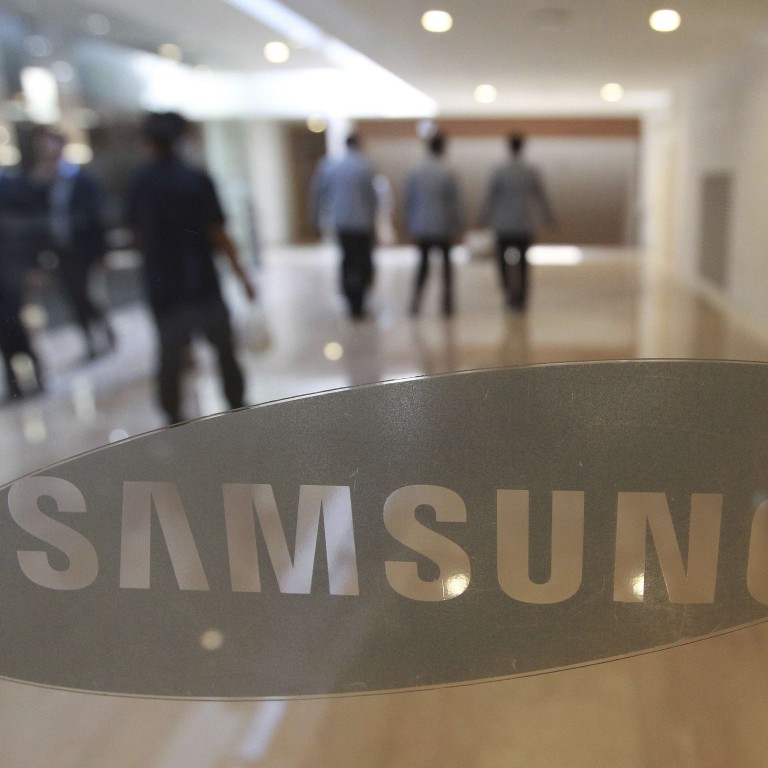
Corporate geniuses often make the daftest mistakes – but remember greed can have a stronger sway than rationality
Samsung’s best and brightest are to blame for its current explosive situation, as were their counterparts at Enron when it blew up, and at Volkswagen as it tried to evade environmental standards
“I have a special message for anyone watching tonight’s show on their Samsung Galaxy Note 7,” a US talk show said in his opening monologue recently. “Run for your lives.”
It is not nice to laugh at other’s misfortunes – and this will be an extremely costly one for Samsung Electronics. But spontaneously combusting phones do have a natural, slapstick comedy element to them, and also make for really funny internet memes.
Plus let’s face it; there is something in human nature that thrills at seeing the successful screw up and the powerful fall.
This is all the more true in light of today’s winner-take-all economic landscape. Samsung has the world’s biggest market share in smartphones, or around a quarter of this enormous global market. In some parts of the rich world, the market is mostly divvied up between just it and Apple.
Trends in technology and globalisation have led to a concentration of corporate power. The same trend is mirrored in everyday life. The outsized individual winners – the top 1 per cent of earners – have enjoyed sweeping gains in their shares of income.

For the less educated or even just the “Average Joes” of talent or intellect, opportunities are drying up.
Creating an “educated workforce” is a top policy concern for most countries, and a key focus of modern economic research.
South Korea sends some 82 per cent of its high school graduates onto university, the highest rate in the world
Many are inspired by Asia’s educational successes. They are also threatened by the same; destiny favours those nations whose citizens are equipped with high levels of skills and knowledge.
South Korea is a perfect example of a country whose achievements in education have paid off in the form of rapid wealth accumulation. Today the country sends some 82 per cent of its high school graduates onto university, the highest rate in the world.
Which brings us back to the subject that is lighting up the Twitterverse and talk shows with jokes and memes: How is it that one of the smartest companies in one of the smartest countries in the world managed to do something so dumb?
The assumption is that speed is to blame; that a hypercompetitive rush to market led executives to overlook what later seemed to be an explosively obvious issue with Galaxy Note 7’s lithium-battery barriers.
But as a representative of the Average Joe – or what the economist Tyler Cowen diplomatically calls the “non-geniuses” – I would suggest that Samsung’s best and brightest are to blame for this.
We have seen this story before. The US energy group Enron, for example, was staffed by graduates of top American universities who were given free rein to let their genius roam – those geniuses blew up the company. The US subprime bond crisis has been attributed to starry-eyed overconfidence in the complex math of these bonds.
More recently, Volkswagen’s stealthy attempt to evade environmental standards – a move which them cost them billions in regulatory fines and lost sales – demonstrated that than greed can have a stronger sway than rationality. And cause long-lasting effects.

Stupidity is such a major issue in corporate life, that two business professors, Andre Spicer and Mats Alvesson, have dedicated their careers to its study. They have interviewed thousands of high-skilled executives on the cutting edge of the modern knowledge economy, in fields ranging from technology to banking to pharmaceuticals.
“During the course of our research, we were constantly struck by how these organisations, which employ so many people with high IQs and impressive qualifications, could do so many stupid things,” the authors write in a promotion of a recently published book on their research findings.
The book is called The Stupidity Paradox, and I look forward to reading it. Assuming I ever do. Unfortunately, it seems that ever since I got a smartphone, my attention span has shrunk to about 140 characters.
Cathy Holcombe is a Hong Kong-based financial writer

